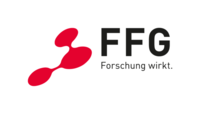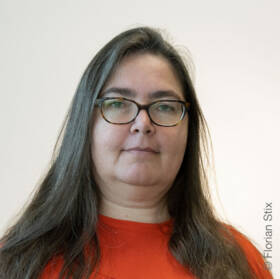Investigates optimization approaches with regard to rail freight transport.
Background
One ton-kilometer on rail produces only about 2% of the greenhouse gas (GHG) emissions of a ton-kilometer on road. Consequently, shifting more freight transport to rail makes sense, as it will reduce GHG emissions caused by freight transport and counteract climate change. However, installing a competitive intermodal transport chain (transport based on a combination of different modes of transport such as trucks, trains etc.) that makes such a shift possible, requires flexible and optimized processes in freight transport. For this the entire transport chain from the initial station to the final station, but also pre- and on-carriage transportation via other vehicles (e.g., follow-up transport using trucks) has to be examined.
Project content
At present, efforts to optimize procedures in freight transport single out individual process steps only. However, this neglects complications that might arise from interaction-effects in the intermodal chain (transport with different modes of transport). In a similar vein, beneficial synergy effects or optimization potentials by combining measures from different processes might go unnoticed. Closing these knowledge-gaps is the main objective of the NITOB project. It adopts a holistic view on process optimization and integrates results and insights from previous projects (e.g., the EntKuRo project). More precisely, the entire transport chain is examined from a technological point of view (e.g., possibilities of digitalization) as well as from a process-related point of view (e.g., improved scheduling).
Goals
The overall aim of NITOB is to explore the ways in which freight transport can be shifted from road to rail and where there is room for optimization. We pay great attention to the effects of pre-carriage and onward carriage (e.g., loading of goods from other modes of transport onto rail and vice versa) and to interaction-effects between different individual processes. We therefore broaden the perspective on freight transport by examining the whole transport chain and how processes mesh, always bearing in mind that climate targets need to be reached. The findings obtained form the starting point for follow-up projects in which the solutions developed here are put into practice together with companies.
Methodology
The methodology and approach can be broken down into three sub-steps:
- Fact-based analysis of intermodal transport chains with a focus on rail and the upstream and downstream processes, as well as an inventory analysis in the D-A-CH region (Germany, Austria, Switzerland). Standard processes in freight transport and the intermodal transport chains are systematically examined to uncover possible weak spots.
- Analysis of which optimizations are practicable and formulation of criteria for the evaluation of optimization potentials. Development of measures to overcome the shortcomings identified in the previous step. Evaluation criteria take into account costs, time required, resources used, and the impact on greenhouse gas emissions.
- Validation of optimized processes based on use cases; outcomes lay the foundation for future cooperative research projects. The process chains of several real-case everyday operations are mapped and the effects of adjustments evaluated and verified in an iterative process. The Faculty of Transport Sciences at the University of Zagreb is supporting the project with its expertise in creating simulations of railroad infrastructure systems and timetable designs.
Results
In order to reduce transport-related greenhouse gas emissions, it is necessary to shift transport from road to rail. To make this transition a success, adjustments in freight transport and optimized processes are required. In the current project we explore the potential for such optimizations across the entire transport chain at various levels. In other words, we consider all freight transport workflows and do not narrow down the scope of investigations on single processes only. The insights gained give rail companies a sound basis for taking measures (in follow-up projects) that strengthen rail transport in its role as a sustainable means of transport.
Mobility of the Future is a research, technology and innovation funding programme of the Republic of Austria, Ministry of Climate Action. The Austrian Research Promotion Agency (FFG) has been authorised for the programme management.
NITOB Final Report (in German)
You want to know more? Feel free to ask!
Department of Rail Technology and Mobility
- Verkehrswissenschaftliche Fakultät der Universität Zagreb



